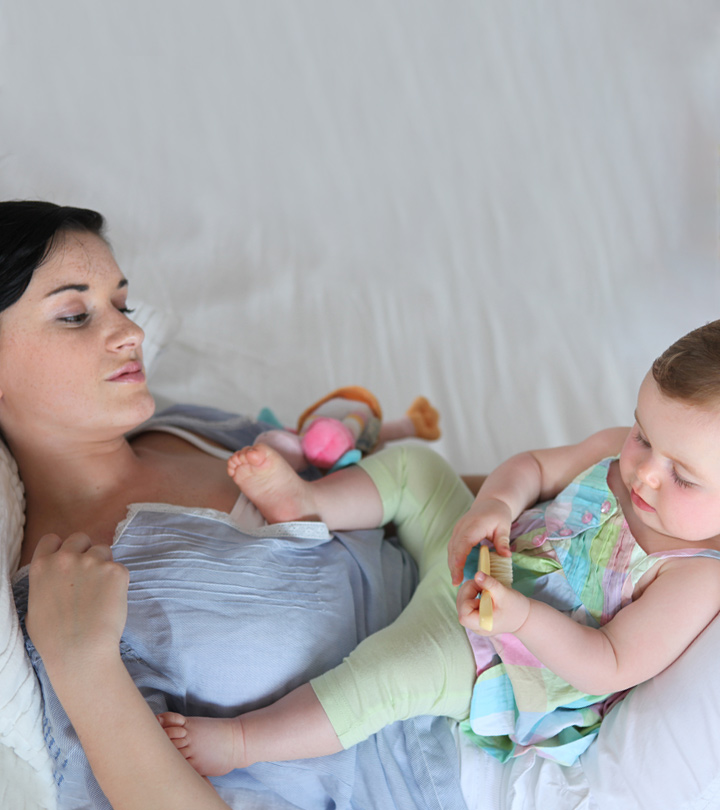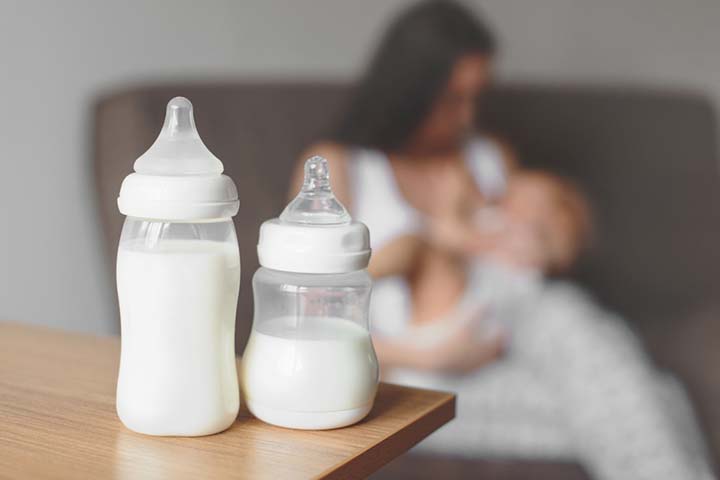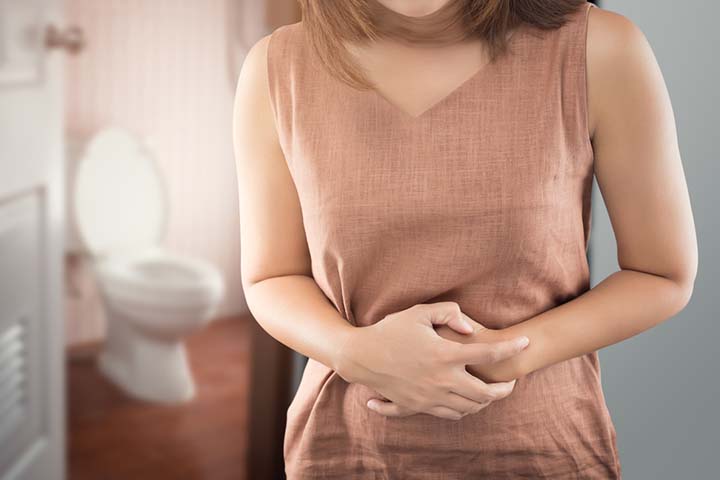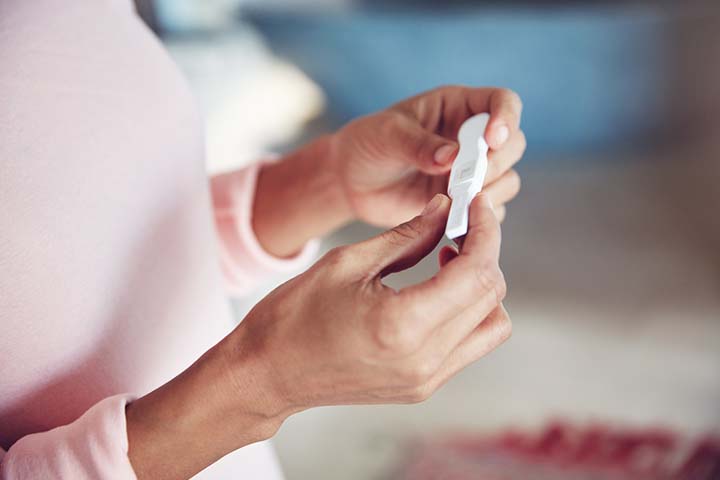It takes some time for the menstrual cycles to kick back after pregnancy and childbirth. And, it may take further more time to get your first period while breastfeeding due to the hormonal changes of lactation. However, the menstrual cycle gradually commences and gets back to normal once the hormones settle in a few months after delivery. Read this post as we talk about the correlation between breastfeeding and menstruation.
Why Are Periods Delayed When Breastfeeding?
The periods are usually delayed if you are exclusively breastfeeding the baby, due to the hormonal changes. The suckling stimulus on the breast leads to the reduction of the luteinizing hormone (LH) and gonadotropin-releasing hormone (GnRH) produced by the hypothalamus and the pituitary glands, respectively. These hormones play a vital role in the release of the egg by the ovaries.
There is also an increase in the levels of the prolactin hormone, which affects the ovaries (1). A combination of these hormonal changes leads to a temporary suspension of the menstrual cycle.
When Can You Expect Your First Period When Breastfeeding?
It is difficult to predict a range or exact time when a breastfeeding woman can start getting her periods again.
Medical researchers have found that mothers who bottle-feed (breast milk or formula) their babies get their menstrual periods sooner than the mothers who breastfeed the baby (2).
The effect of breastfeeding depends on several factors like the age of the mother, the duration and frequency of breastfeeding, and if the baby is fed breast milk from the bottle or directly from the breast (1).
Can You Breastfeed On Your Period?
Yes, breastfeeding during menstruation is completely safe. Your breast milk is healthy for the baby, even while you are on your period.
How Does Your Period Affect Breastfeeding?
Periods do not affect breastfeeding adversely but only bring a few changes to your breasts and milk production.
1. Reduced breast milk supply: Several women notice a temporary reduction in the flow of breast milk while menstruating. It is a temporary change and normalizes in a few days. Have a balanced diet to have a good milk supply. If necessary, the doctor may suggest some supplements likecalcium and magnesium to improve milk production and its quality.
2. Change in milk composition: Some researchers have found that during ovulation and menstruation, the quantity of sodium and chloride increases, while lactose and potassium decrease in the mother’s milk. This might cause mild alteration in the taste of the mother’s milk (3).
3. Nipple tenderness: The hormonal changes that accompany periods could cause nipple tenderness. It is a temporary change. Engage in nipple stimulation to express milk to avoid clogged ducts and other related problems. You may consult a gynecologist or lactation consultant if the tenderness is severe.
Changes in milk production and the breasts are temporary, and you should continue your breastfeeding frequency as usual.
When To See A Doctor?
Breastfeeding and periods often affect one another, but can also occur simultaneously with little concern. However, in certain situations, it is best to see your gynecologist promptly (4).
- No menstrual cycles after stopping breastfeeding
- Too heavy or too less menstrual flow
- Intermittent spotting or bleeding after having sex
- Sudden weight loss
- Pain in the pelvic area or axialla (armpits)
- A sudden decrease in the quantity of breast milk
- Excruciating pain while nursing
- Cracks or abrasions on nipples
- Blood discharge from nipples
- Lumps in breasts
If you see very heavy bleeding between two periods, you should consult your gynecologist as soon as possible.
Breastfeeding And Fertility
It is not necessary that all women who have their periods after delivery ovulate as well (1). Some women may have anovulatory menstrual cycles during breastfeeding before they begin to ovulate.
Research suggests that suckling by the baby results in high levels of prolactin in women who regularly breastfeed, and this could lead to anovulatory cycles. An anovulatory cycle is when the woman menstruates as usual but there is no ovulation, that is, the ovary has not released an egg (2).
Since ovulation in breastfeeding mothers is unpredictable, it is not a sure-shot way of contraception during breastfeeding. It is recommended to use other contraceptive methods if you do not want to conceive again.
Several factors may influence the restart of your periods during breastfeeding. It may take time for you to get your first period while breastfeeding due to the hormonal changes during pregnancy and nursing. Also, if you have had your periods during breastfeeding, you may note a reduction in milk supply or an increased tenderness of the nipples. However, this shouldn’t stop your nursing practices since the WHO advises all babies to be breastfed exclusively for the first six months (6). These changes are common and nothing to worry about. However, consult your doctor for prompt medical attention if you note any concerning signs.
Key Pointers
- Hormonal changes may delay periods in lactating mothers who exclusively breastfeed.
- Breastfeeding frequency and the age of the nursing mother affect the relationship between periods and breastfeeding.
- Women may experience reduced milk flow, sore nipples, and changes in breastmilk composition during their first period.
- If experiencing blood discharge from nipples, lumps in the breast, unusual menstrual flow, spotting, or sudden weight loss, it is advised to consult a healthcare provider.
Explore the fascinating connection between breastfeeding and a woman’s menstrual cycle, understanding that while some experience changes, others do not, and delve into the factors influencing these variations.














